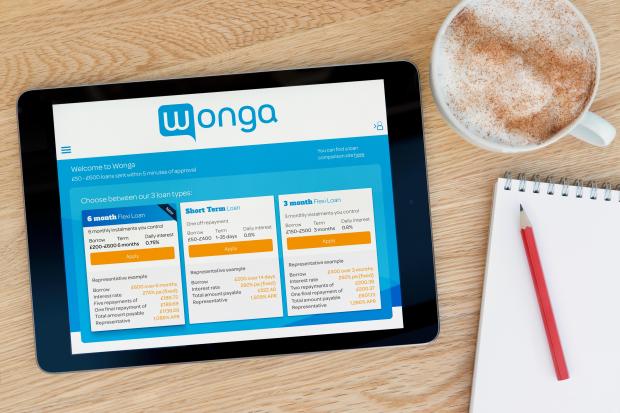
PAYDAY loan giant Wonga has gone bust after a lb10million emergency cash injection from shareholders didn't keep it afloat.
So what does that mean for your debts? Can they be written off? Here's our guide.
Why has Wonga gone bust?
In 2023, the firm brought in a new management team and wrote off lb220million worth of debt owned by 330,000 customers after admitting handing out loans to individuals who could not repay them.
Wonga was processing thousands of compensation claims after it had been charged with irresponsible lending, targeting vulnerable customers and charging sky-high interest.
In August 2023 it was kept afloat thanks to a lb10million emergency cash injection from shareholders.
But Wonga said the money injection only resulted in an influx of new claims and also the firm continues to be unable to deal with the demand.
On August 30, Wonga confirmed that its UK and parent companies goes into administration.
In a statement, Wonga said: "The Boards of those entities have assessed all options concerning the way forward for the audience and have concluded that it is appropriate to put the businesses into administration."
City regulators are reportedly in talks with Wonga over selling parts of the firm in order to save 500 jobs.
The company has stopped taking new loan requests, but is still collecting repayments.
Grant Thornton has been appointed to do something as administrator after the company held emergency talks using the Financial Conduct Authority (FCA) over the impact of their collapse on existing customers.
What happens to my debts now Wonga has gone under?
Unfortunately, it doesn't mean your debts is going to be written off.
When the firm went into administration, administrators took over the important of the company.
This means that if you have financing using the payday lender and are still paying it back, then you'll need to continue your payments normally.
Wonga could attempt to raise funds by selling debts on to other firms, which could then chase former Wonga customers for just about any outstanding repayments.
If this is actually the case, the organization that buys the loans will need to meet certain regulations put down by the Financial Conduct Authority (FCA).
Why is Wonga paying out compensation?
Four years back, the town watchdog, the FCA, ordered door step lenders for example Wonga and Quick Quid to compensate borrowers who slipped into more debt as a result of irresponsible lending before a cap was brought in in 2023.
Customers were charged sky-high rates of interest on cash loans they couldn't manage to pay back, pushing them further right into a spiral of debt.
Payday lenders were also charged with specifically targeting vulnerable borrowers.
Recently, nokia's were slammed by claimant experts for "dragging their feet" over handing over payouts.
Vincent Vernon from Payday Refunds said it is coping with 32,000 customers and claims one fourth of which are with Wonga.
How will i know if I'm owed compensation?
To get payouts, customers have to prove that their financial situation worsened as a result of the loans which the loans were irresponsibly lent for them.
They need to include details such as the address they lived in at the time they requested the loan, and how easy it was to get the cash.
Some of those details can be challenging recall and James Walker from complaints tool Resolver claims that firms are earning it harder by closing customers' online accounts.
Borrowers don't need their online accounts to lodge a complaint though, because the firm is legally certain to keep track of all the loans it's given out over the past six years.
Can I still claim compensation?
Yes, you may still submit a claim if you feel that you're owed compensation – however, you might not use whatever from the money.
Now it's gone bust, you'll potentially need to register claims like a creditor using the administrator.
You'll be included to a summary of everyone who are owed money by the company.
Banks that lent money to Wonga will receive a payout first, so there might not be anything left when they reach individuals with unsecured debts, for example customers who appear at first sight due compensation.

